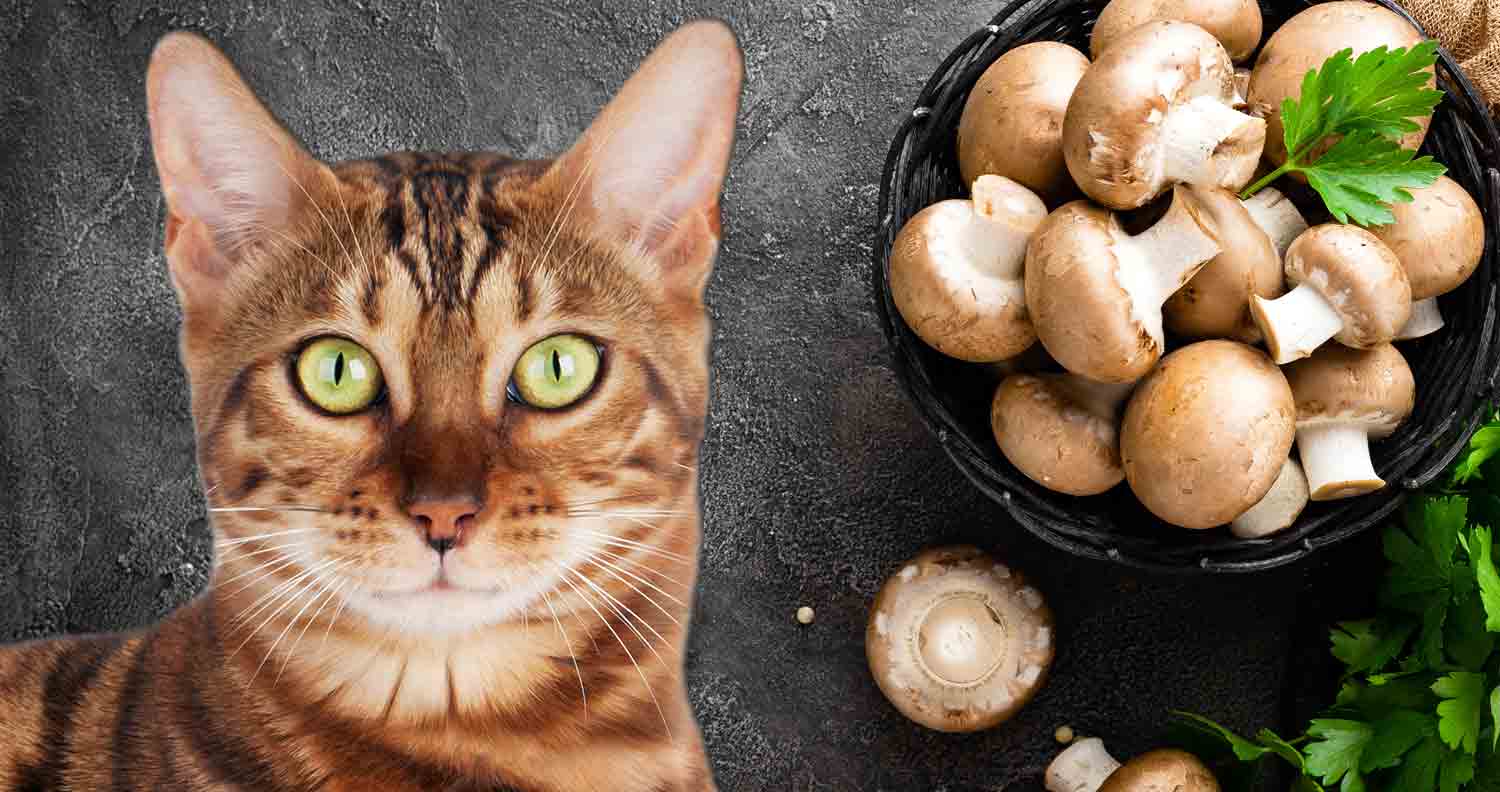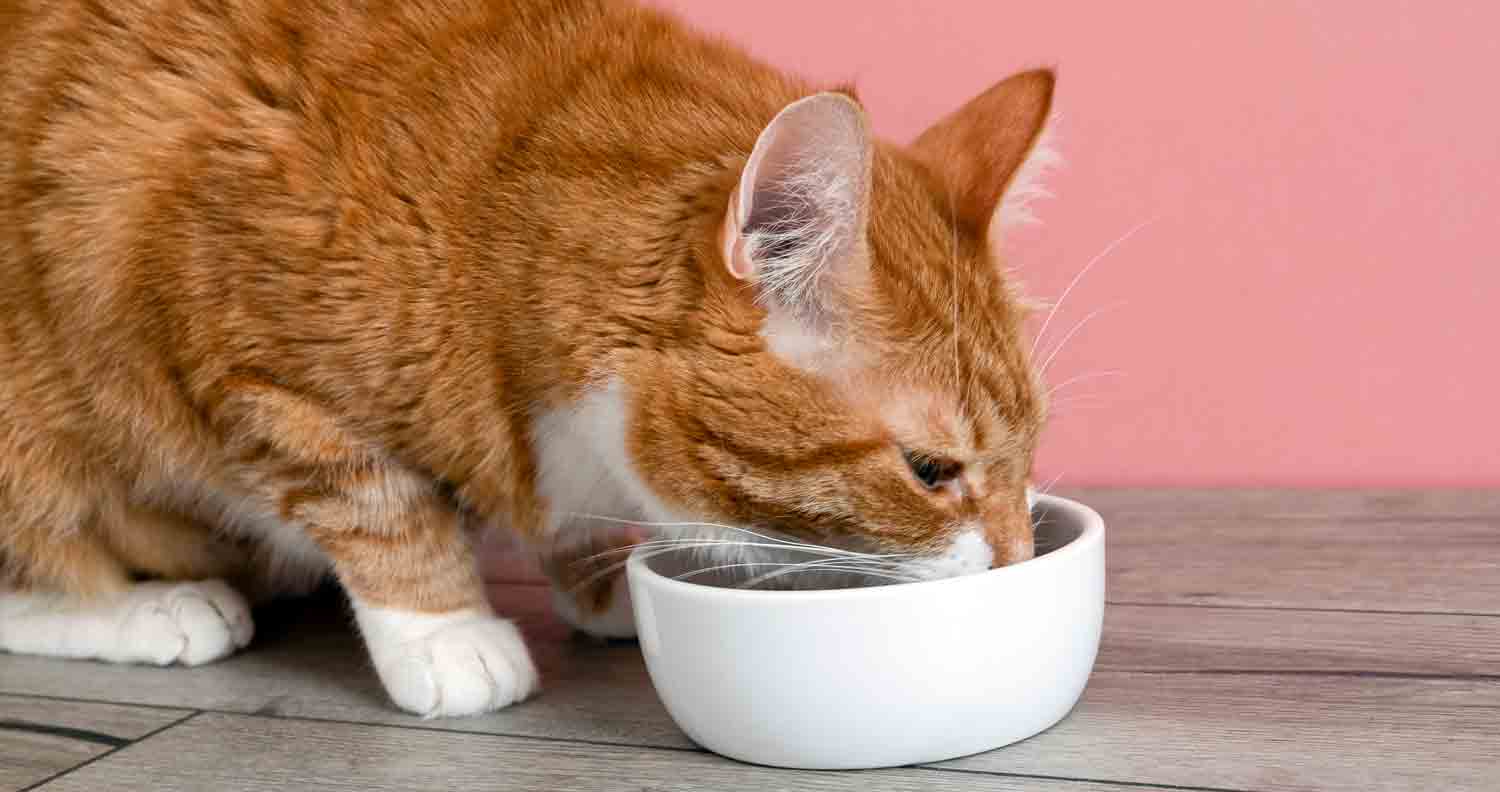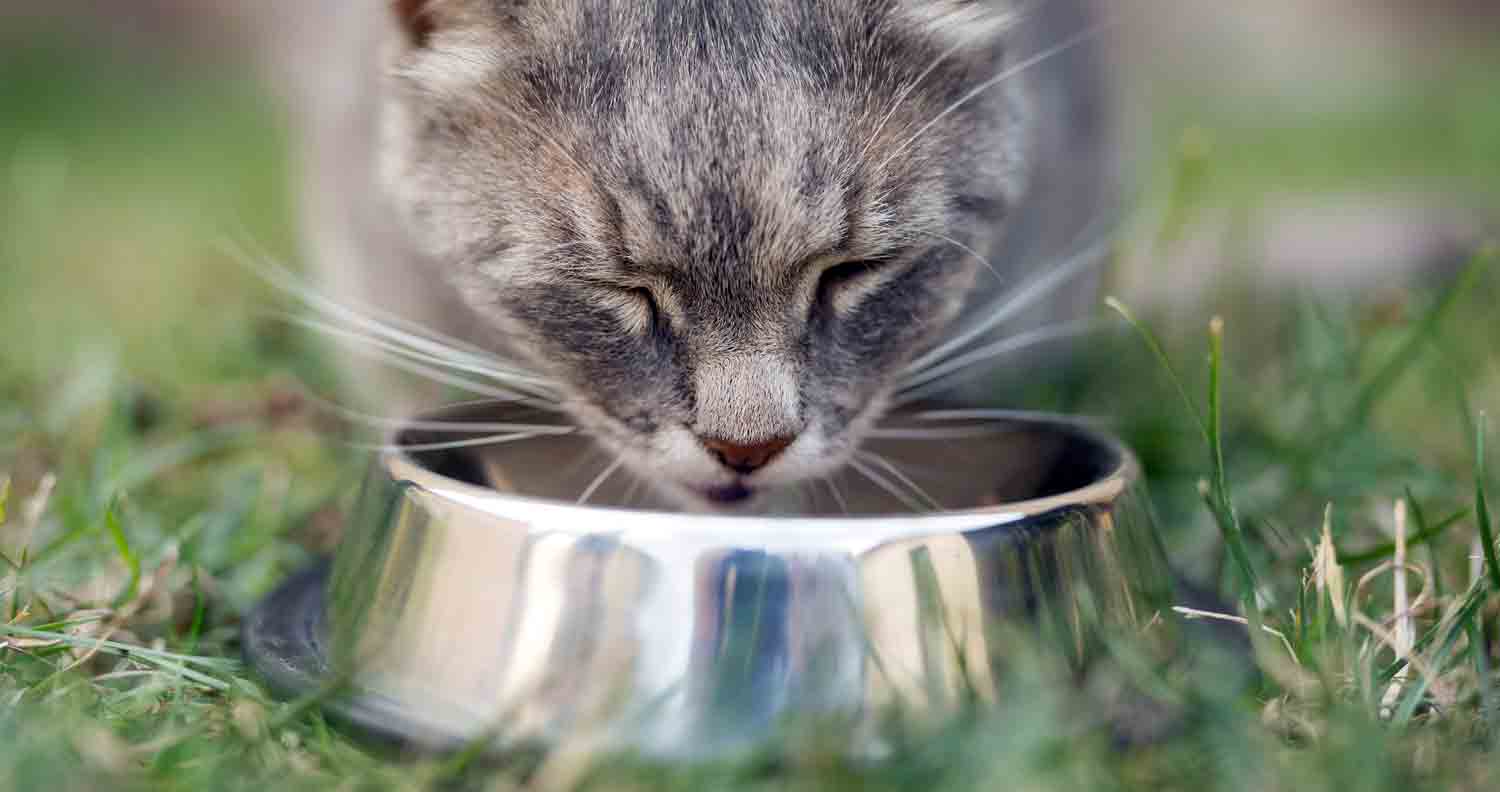Can Cats Eat Mushrooms? What You Need to Know
Share:

Have you ever wondered, can cats eat mushrooms or other similar types of food?
Firstly, cats are obligate carnivores, which means they need meat to survive. However, that doesn’t necessarily mean our moggy pets won’t occasionally look for something a little different in their diet.
You may have noticed your kitty trying to munch on grass and even the flowers you bring home from the store, for instance. Maybe you’ve even noticed your cat trying to chow down on some mushrooms as you prepare them for your own meals.
But why on earth would a cat want to eat a mushroom? It’s not as unusual as you might think. Mushrooms, like other forms of food your kitty might find in the wild, can be an interesting source of flavor and a unique treat for your cat. The key is making sure you’re staying safe with the kind of mushrooms you offer your cat.
Why Would a Cat Eat Mushrooms?
You might be wondering why your cat would consider eating mushrooms in the first place, if they’re not a typical part of her diet. There are a few potential reasons your cat might seek out mushrooms, including them looking for something they’re not getting in their standard meals.
However, the most common reason a cat would want to eat a mushroom is simple – they’re tasty. Mushrooms contain a substance called glutamate, which is a form of amino acid commonly found in umami foods. Mushrooms are packed full of flavor that cats can easily pick up on and enjoy.
Just like you might enjoy eating certain foods because the texture and the way they taste, your cat can be just the same way. Your furry friend may enjoy eating mushrooms as a regular snack – but they’re probably not looking for any specific dietary benefits from the mushroom itself.

Should You Feed a Cat Mushrooms?
While the answer to “can you feed a cat mushrooms?” might be “yes”, this doesn’t mean you should be doing so all the time. Feeding your cat a store-bought mushroom you’ve carefully researched (to ensure there are no dangerous or toxic ingredients) is usually safe enough.
However, as with most treats for your feline friend, it’s best to stick to small quantities when giving your kitty mushrooms. It’s probably not a good idea to give your cat mushrooms as a regular part of their diet, as mushrooms can contain all kinds of ingredients like toxins and chemicals which aren’t ideal for your cat’s health.
If you are giving your cat a mushroom as a treat, it’s important to remember that you should always cook the mushroom without any special sauces or seasonings. Though a small amount of mushroom might be safe for your cat, the same won’t always be true for seasonings.
Another point to keep in mind is that giving your cat mushrooms could mean that they get full faster, which causes them to avoid their own food. This could lead to your cat having various nutritional deficiencies or losing weight due to a lack of access to protein.
On the other hand, if your cats eat a large number of treats, but still eat all of their regular food too, then you increase their risk of suffering from obesity. Obesity can be extremely problematic in cats, leading to problems like diabetes, and joint issues.
What kind of Mushrooms Can You Feed Your Cat?
Standard store-bought mushrooms, like the portobello or button mushroom are generally the safest choice for cats. You should never feed your cat wild mushrooms because it’s often very difficult to safely identify which forms of fungi are toxic.
There are numerous types of mushrooms that include, death cap mushrooms, psychedelic mushrooms (also known as magic mushrooms that are used as a recreational drug), panther cap mushrooms, and many more. So it's best to be cautious, even for us humans!
In the wild, cats are sometimes attracted to wild mushrooms due to their scent, but consuming these mushrooms can be extremely dangerous, causing everything from stomach problems to poisoning. If your cat does go outside regularly, check your garden to make sure no mushrooms are growing which could be dangerous to their health. It’s also worth watching for symptoms of poisoning in your cat, such as:

Get 30% off and FREE shipping on cat food!
U.S.A. only
To Find out why we recommend chewy.com, click here
The kind of symptoms your cat experiences as a result of poisoning will differ depending on the kind of mushroom. If you know what kind of mushrooms your cat has eaten, take a picture or description with you to your veterinarian. This will help to ensure you get the right treatment for your kitty.

Feeding your Cat Mushrooms: Is it a Good Idea?
Some cats appear to be naturally drawn to the unique taste of a small amount of shop-bought and well-cooked mushrooms. It’s safe enough to give a small amount of these mushrooms to your kitty from time to time. However, you should typically try to stick to cat food and kitty treats specifically created for your cat, to help to reduce your risk of negative side effects.
Cats are designed to process a diet with a heavy focus on meat and protein, so mushrooms and similar plant substances aren’t necessary for good health. It’s also important to avoid wild mushrooms whenever possible, as these can be very dangerous for your cat.

Get 30% off and FREE shipping on cat supplies!
U.S.A only
To Find out why we recommend chewy.com, click here
Affiliate disclosure : We Love Cats and Kittens is a participant in several affiliate programs including the Amazon Services LLC Associates Program, and the Chewy affiliate program. These are affiliate advertising programs designed to provide a means for sites to earn advertising fees by advertising and linking to products on their sites. If you click on links in our blog posts and articles we may be paid a commission.
Share:

